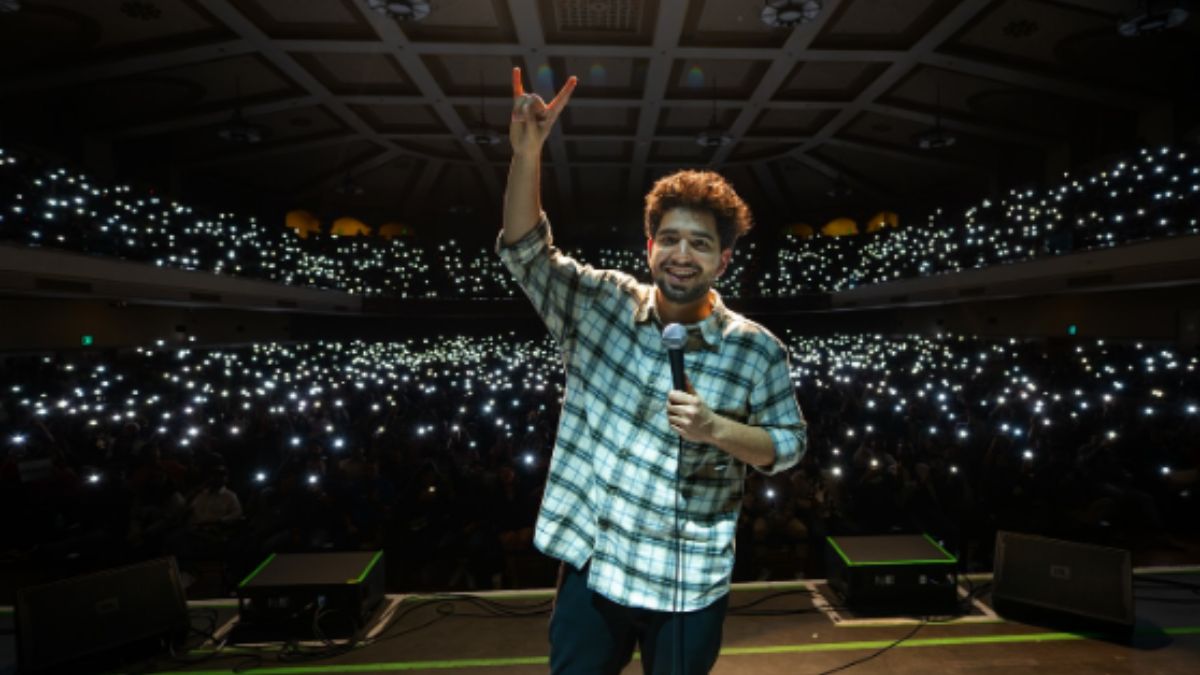The Supreme Court on Monday (August 25) told India’s Got Latent host Samay Raina and four of his co-comedians to apologise on their social media channels for ridiculing people with disabilities and rare genetic disorders. It said the comics cannot press their free speech rights when their “commercial” content offends the dignity and sensitivities of others.
The top court also directed the Centre to place on record the proposed draft guidelines to regulate content on social media. The case against Raina and others came in the wake of the controversy involving YouTuber Ranveer Allahbadia over objectionable remarks during an episode of the YouTube show India’s Got Latent.
Let’s take a closer look.
The case against Samay Raina, other comics
The non-profit outfit SMA Cure Foundation moved the Supreme Court earlier this year, accusing stand-up comedians Samay Raina , Vipul Goyal and three others of cracking insensitive jokes about persons with disabilities (PwDs).
The comics were accused of mocking people with disabilities, including those with visual impairments and spinal muscular atrophy.
The foundation approached the Supreme Court for directions to the government to draw up guidelines for all media platforms to protect persons with disabilities from “disabling humour”.
The case came close on the heels of YouTuber Ranveer Allahbadia’s crude remarks on Raina’s popular show India’s Got Latent in February.
In May, the apex court had directed the Mumbai Commissioner of Police to ensure the presence of Raina, Vipul Goyal, Balraj Paramjeet Singh Ghai, Sonali Thakar aka Sonali Aditya Desai and Nishant Jagdish Tanwar in court. It later allowed Thakar to appear online.
What has SC said?
On Monday, the Supreme Court asked Raina and the four other comics to offer an unconditional apology on their online channels for their alleged insensitive remarks on people with disability.
A bench of Justices Surya Kant and Joymalya Bagchi directed Raina and others to “go apologise on your podcasts, etc…”. “Then tell us about the cost/penalty you are willing to bear.”
Petitioners, including the SMA Cure Foundation and Cure SMA India Foundation, argued that derogatory comments against persons with disabilities violated the right to dignity.
“Humour is part of life and we can take jokes on us. But when you start making fun of others…there is breach of sensitivity. India is a diverse country with so many communities and these are so-called influencers of today. When you are commercialising speech, you cannot use a community and hurt their sentiments,” Justice Bagchi said, as per Bar and Bench.
“It’s not just freedom of speech but the question is of commercial speech. There are cases of classical, commercial or free speech. When we talk of commercial speech then there is no freedom there,” the judge added.
The bench said it will decide the quantum of penalty to be paid by the comedians during the next hearing.
Justice Kant said, “The degree of repentance should be higher than the degree of offending, it’s like purging contempt.”
The court also observed that the Information Technology Act can include penalties for such actions.
Senior Advocate Aparajita Singh, appearing for Cure SMA India Foundation, told the bench,
“What these influencers say matters. So these influencers can use their medium and take forward this issue and espouse the cause.”
After the Allahbadia controversy, the Supreme Court in February had called for implementing “reasonable restrictions” on the right to freedom of speech and expression under Article 19(2) of the Constitution. It had asked the Centre for its views.
Attorney General for India R Venkataramani on Monday said he will submit the proposed draft guidelines, but there cannot be a “complete gag”.
The apex court said that the proposed guidelines should ensure the rights of all are protected without impinging upon the rights, dignity, honour, and respect of people.
“Today, it is disabled, tomorrow something else. How will the society be affected…where will all this end?” Justice Kant said.
The court then granted time to the Centre to place on record the guidelines.
“Such guidelines shall be drafted with consultation by NBSA [News Broadcasting Standards Authority]. The suggestions and viewpoints of all stakeholders shall be taken. The guidelines shall not be knee-jerk reaction to any incident, but shall be wide enough to cater to future challenges,” it said in the order.
The matter will be heard next in November.
With inputs from agencies


)

)
)
)
)
)
)
)
)



